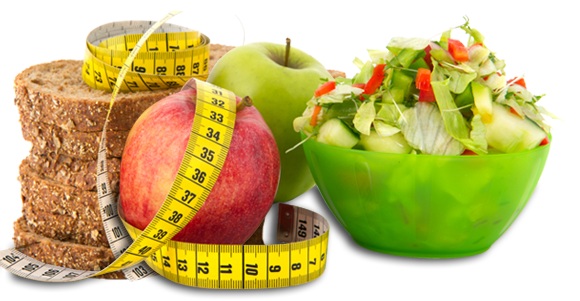How to calculate the caloric deficit: The healthiest way for the fat loss calorie deficit
If you want to lose weight safely and healthy, it is essential to reach a caloric deficit to lose weight without risks to your health. We show you how to calculate it and what is essential for you to eat in order not to leave out any nutrients.
The caloric deficit is defined as the lack of calories to reduce and maintain a balanced body. That is burn more than you eat to prevent weight gain and even lose weight weight. Basic then to lose weight, both if you are overweight or if you want to define your muscles. It is also important to know what nutrients we should take and what we can do without taking maximum care of our health. We show you how to calculate and achieve it in a healthy way and without unnecessary risks.
Know your metabolism:
The functioning of your metabolism will depend on several factors such as your basal metabolism, the thermogenesis of physical activity, and the thermogenesis or thermal effect of food.
Your basal metabolism is the amount of energy that you consume per day, basically without exercising, that is, the one that our body needs. The more muscle mass we have, the greater our basal metabolism will be.
On the other hand, the thermogenesis of physical activity will also affect our fat burning, so that the more exercise we practice, the more fat we will be able to burn. For this reason, we always say that it is essential to combine a good diet with a regular practice of exercise.
And finally, the macronutrients in food also play a role in our metabolism, as we discussed in another post about fat burning tips, the thermogenic effect of proteins (what the body consumes to assimilate them) is between 20 and 25% of the amount ingested, while in the case of carbohydrates it is only 5-10%, and fat is 0%
Control the calories you eat:
The other way we have talked about reducing weight and burn fat is the number of calories we eat throughout the day.
Fixing a diet suitable to our needs is essential, the balance of calories we eat throughout the day should be low enough for us to enter this caloric deficit.
It is essential to follow a good diet and control meals, but be careful with passing and following a very abrupt or shock diet, it is very likely that we will achieve the opposite effect. A continuous feeling of hunger can lead to uncontrolled eating and a rebound effect. In our post of tips to control appetite, we give you some tricks to get it.

In addition, if you spend many days in a high caloric deficit, it must be borne in mind that your basal metabolism will also decrease, the role of hormones, such as leptin, coming into play, which we already told you about in another of our previous posts and that we encourage you to read.
The first thing is to know what our daily calorie range is to stay healthy and, for this, you can use this simple method: multiply your body weight by 26 and by 28. That is, if you weigh 90 kilos, 90 x 26 = 2340 and 90 x 28 = 2520. Your daily calorie range will, therefore, be between 2340 and 2520. Known this, calculate the calories you consume doing sports, for example, 500, and you will lose weight more or less depending on the range you are in and the physical exercise you do. In the opposite direction, if your goal is to gain weight to gain more muscle mass, for example, look for a calorie surplus or a low-calorie diet, but always controlled.
What to eat to lose weight? Proteins are essential, as common sense marks. It will depend on the type of activity you do: running, cycling, walking, hypertrophy, strength training ... But, at a minimum, proteins should account for 10 to 15 percent of the total caloric intake, and of high biological value over everything like meat, fish, milk or eggs. If you train regularly in the gym, calculate between 1.8 and 2 grams of protein for every kilo of your body weight. That is if you weigh 80, then 80 x 2 for example, 160 grams of protein a day and, if it can be, distributed throughout all the meals you make.
As for the rest of the nutrients, there are studies that ensure that to reduce fat it is more effective to dispense with carbohydrates rather than 'good' fats. So few, but quality carbohydrates, such as cereals, quinoa, oats, legumes, fruits or vegetables; and unsaturated fats such as nuts, bluefish (sardines, herrings ...) or olive oil. The refined flours or touch them, if anything your cheat meal day, and dispense with those foods that provide you with empty calories such as soft drinks, industrial pastries, or junk food in general.
Remember also that going into caloric deficit to lose weight has its drawbacks and you can feel more fatigue, see your defenses affected, or lose some muscle mass.
Key points for the caloric deficit and not failing in the attempt
- Fundamental: keep at bay your whims and temptations. Therefore, a good idea is to save yourself one cheat meal a week to unleash your culinary perversions ...
- Now it is not so fashionable, but eating several times a day, 4 or 5 for example, to keep you satiated, it still seems like good advice.
- Be well hydrated. Drinking a lot of water is essential for the caloric deficit but for your day to day in general. Obvious, but necessary to remember!
- Exercise. Gentle fasting cardio or going to the gym regularly will help you better adjust your calorie deficit and make it more effective.
- Rest. Sleeping well, at least 8 hours a day if possible, will help regulate your body better, feel more vital and less irascible, and, above all, allow your muscles to grow.
- Reduce stress. Complicated yes, but essential to not binge, eat late, or not to walk with the mind focused on various concerns.
- Peck some satiety products between hours, but in a moderate way, such as apples or nuts.
Our recommendation
We already know the only great secret to achieve our purpose: the caloric deficit. From Vitónica, we advise you to achieve this, put into practice the two ways: increase your metabolic rate through regular exercise, and control your daily calorie intake.
If we only follow one of these paths, that is, increase your physical activity or control the calories you take, it is very possible that you lose weight, but not optimally, since the idea is to combine both ways to lose weight and also tone your body without losing excess muscle.












0 Comments